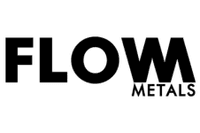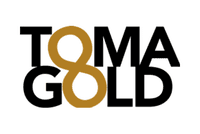UAE the Top Destination for Smuggled African Gold Worth Billions, Study Says
More than a metric ton of gold per day was smuggled out of Africa in 2022 alone, a recent report from SWSSAID says.

A recent study by SWISSAID shows that a high level of gold is being smuggled out of Africa, with over a metric ton (MT) of the yellow metal per day being illegally transported out of the continent in 2022 alone.
The study, which provides a comprehensive analysis of Africa's artisanal and small-scale gold production, reveals that at least 435 MT of gold, worth approximately US$31 billion at current prices, was smuggled out of the continent that year.
“Our study concerns a phenomenon that is already known, but whose magnitude we could only imagine until now,” said Yvan Schulz, co-author of the study. “By looking at the African continent as a whole and by putting a figure on all gold flows, SWISSAID was able to prove that African gold smuggling was much more important than previously assumed."
Between 321 and 474 MT of gold are produced annually by artisanal and small-scale miners in Africa without being declared. This undeclared gold accounts for 75 percent of Africa’s total artisanal and small-scale gold production and has a commercial value of US$24 billion to US$35 billion — a volume that represents between 72 and 80 percent of Africa's total artisanal and small-scale gold production, or between 32 and 41 percent of the continent's total gold production.
The high amount of gold smuggling, which more than doubled from 2012 to 2022, poses economic and security challenges for African nations. But where is it all going?
Where is Africa's smuggled gold going?
Most of Africa's smuggled gold ends up in a few key destinations. The United Arab Emirates (UAE) is the primary recipient, importing 47 percent of the undeclared gold, followed by Switzerland (21 percent) and India (12 percent).
From 2012 to 2022, the UAE imported 2,569 MT of gold from Africa that were not declared for export by the source countries, equating to a staggering worth of US$115.3 billion. This gold is typically refined in Dubai before being re-exported to other countries, including India, Switzerland, Turkey and Hong Kong.
SWISSAID also emphasizes the role of Switzerland as a major hub in the global gold market.
Switzerland, which hosts four of the world's nine largest refineries, imports substantial gold directly from Africa and indirectly via the UAE. The Swiss legal framework — which considers the last place of processing as the place of origin — allows gold smuggled from Africa and refined in Dubai to enter Switzerland under the guise of being Emirati gold. This loophole facilitates the legal entry of potentially conflict-affected or human rights-violating gold into the Swiss market.
SWISSAID is calling for urgent action to address these issues. “By documenting illegal gold flows, undeclared exports and laundered quantities, and by pointing the finger at the countries involved, we are increasing the pressure for effective guidelines to finally be enacted,” commented Marc Ummel, the report's other co-author.
Recommendations include increasing transparency, harmonizing taxes and adopting national legislation that adheres to the Organization for Economic Co-operation and Development's due diligence guidance for responsible supply chains for minerals from conflict-affected and high-risk areas. The authors hope that these measures will help combat illicit gold flows, improve working conditions in mines and reduce revenue losses for African states.
However, they also warn that along with a head-on approach to the problem, internal conflicts that exacerbate the issue — such as the lack of state agency and widespread corruption in the gold sector — should be addressed first.
“Governments must no longer hide behind the absence or poor quality of data to justify their inaction. They must assume their responsibilities by strengthening controls and working to formalize the sector,” Schulz said.
Don't forget to follow us @INN_Resource for real-time updates!
Securities Disclosure: I, Giann Liguid, hold no direct investment interest in any company mentioned in this article.






